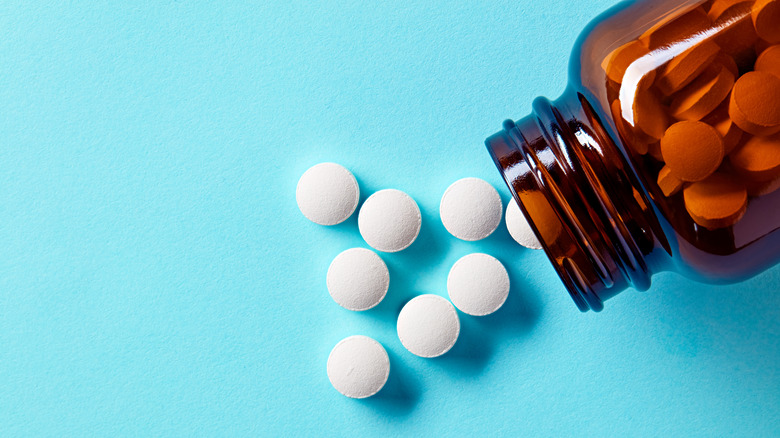This New Pill Could End The Need For Gluten-Free Food
If you're one of the approximately 3 million Americans diagnosed with celiac disease — or one of the 18 million Americans that is sensitive to gluten (according to Beyond Celiac) – you know how difficult it is to miss out on breads, bagels, croissants, and pizzas. Or, when you indulge in these goodies, it's not fun to feel sick afterwards. Even with a whole range of gluten-free substitutions, the real deal is always so much better.
If this sounds familiar, you might like to know that there could be good news on the horizon. According to a report in the New England Journal of Medicine published July 1, researchers in Norway are working on a pill that may help interrupt the inflammatory process that occurs in the intestine when those with celiac or sensitivities eat gluten. Though it's in its early days, the pill has so far shown promising results in local clinical trials. Could this mean a return to wheat for so many of us?
This could be the way to help alleviate celiac - and enjoy bread
According to Science Norway, Norwegian researchers have developed a prescription drug they think will allow those with allergies and sensitivities to gluten to be able to eat all those carb-packed treats without getting sick. The way the pill works is it inhibits the enzyme transglutaminase, which is partially responsible for the inflammatory response produced in the intestine when those who are sensitive indulge in wheat products.
In a small trial, 160 participants were tasked with eating a biscuit every day for six weeks. But 30 minutes before indulging, they took the pill. They received either a low-dose pill of 10 milligrams, a medium-dose pill of 50 milligrams, a high-dose pill of 100 milligrams, or a placebo pill — and the findings so far are promising.
"The most important finding is that those who received the high-dose pill of 100 mg experienced a near 100% protection against duodenal mucosal damage," one of the researchers, professor Knut. E. A. Lundin, said in the article. "These results are statistically significant. This pill works." Even better, few side effects were reported.
Researchers said they will continue to study the pill and utilize it in trials. But the results, at least, inspire a little bit of hope that all of us may someday revel in the deliciousness of gluten — with zero consequences.

